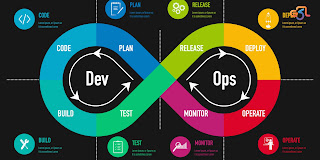Mastering DevOps: The Future of Agile and Scalable Software Development
Introduction
By merging development and operations teams, DevOps is revolutionizing software development, testing, and deployment. This method guarantees higher-quality software delivery, enhanced cooperation, and quicker releases. Businesses are using DevOps techniques to remain competitive as cloud computing, automation, and containerization grow in popularity. Modern developers must understand infrastructure as code (IaC), CI/CD pipelines, DevOps principles, and security best practices. Businesses may increase productivity, decrease downtime, and spur product innovation by utilizing automation, monitoring, and cloud-native technology.
Building an Efficient DevOps Pipeline
For software to be delivered quickly and reliably, an effective DevOps pipeline is essential. Automated testing, quicker releases, and smooth application upgrades are made possible by continuous integration (CI) and continuous deployment (CD). Development workflows are streamlined by tools like Jenkins, GitHub Actions, and GitLab CI/CD. Scalable and repeatable deployments are guaranteed by Infrastructure as Code (IaC) using Terraform and Ansible. Docker and Kubernetes aid in the management of containerized apps, increasing their efficiency and mobility. Real-time performance insights are provided via automated monitoring using Prometheus and Grafana, which enables teams to proactively detect and address problems.
DevOps Security: Ensuring Compliance and Risk Mitigation
DevOps expertise requires security, and enterprises are adopting DevSecOps to include security into their processes. Applications are shielded from dangers by automated security testing, vulnerability scanning, and access control procedures. System security is improved via network segmentation, encrypted communication, and role-based access control (RBAC). Data breaches are avoided by using cloud security procedures including identity and access management (IAM) and automated compliance checks. Businesses may retain application integrity while adhering to industry rules by putting secure DevOps solutions into practice.
Cloud and AI Integration in DevOps
Predictive analytics and intelligent automation in software development are being propelled by the convergence of DevOps, cloud computing and artificial intelligence. DevOps-ready services from cloud providers like AWS, Azure, and Google Cloud make it easier to develop scalable and reliable infrastructure. AI-powered solutions increase system dependability through automated troubleshooting, log analysis, and predictive monitoring. Microservices architectures and serverless computing provide flexibility by allowing companies to grow apps on-demand. DevOps is more effective, economical, and prepared for the future thanks to these integrations.
Conclusion
For businesses hoping to improve software development's efficiency, security, and agility, DevOps expertise is essential. Businesses may guarantee quicker and more dependable software releases by utilizing cloud-native technologies, security best practices, containerization, and CI/CD automation. Through a DevOps internship, aspiring professionals may get real-world experience and abilities that will help them succeed in the rapidly changing digital sector.

Comments
Post a Comment